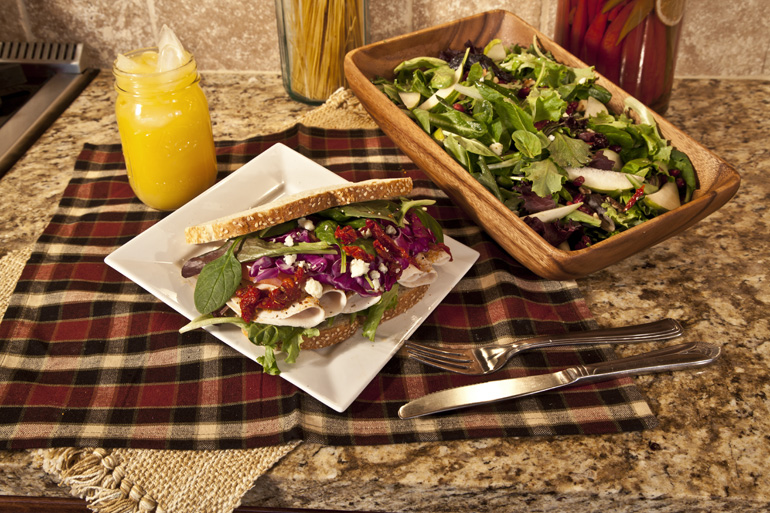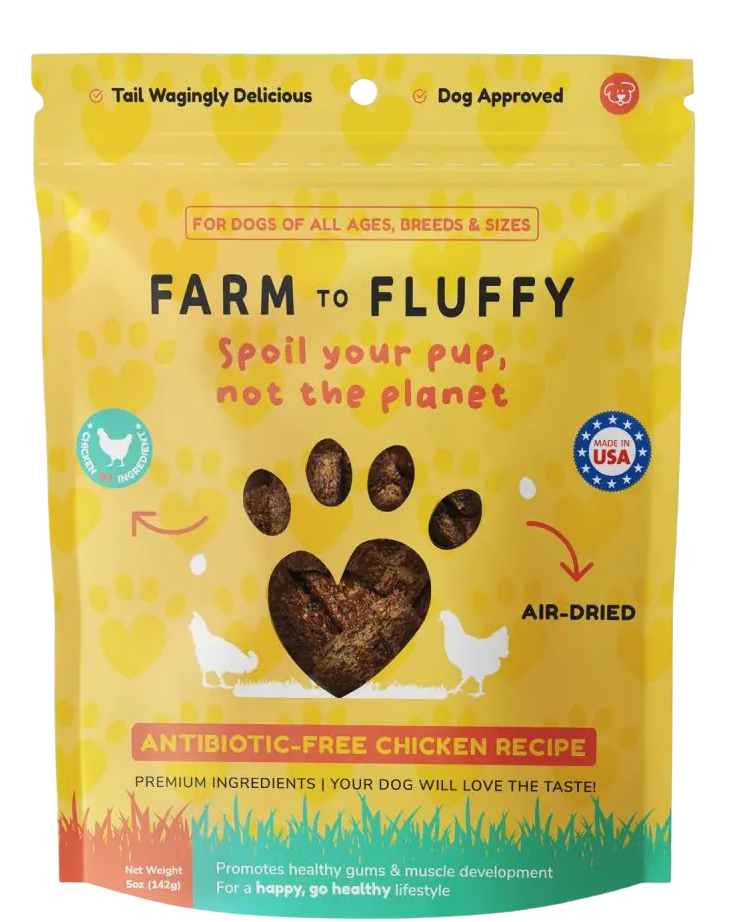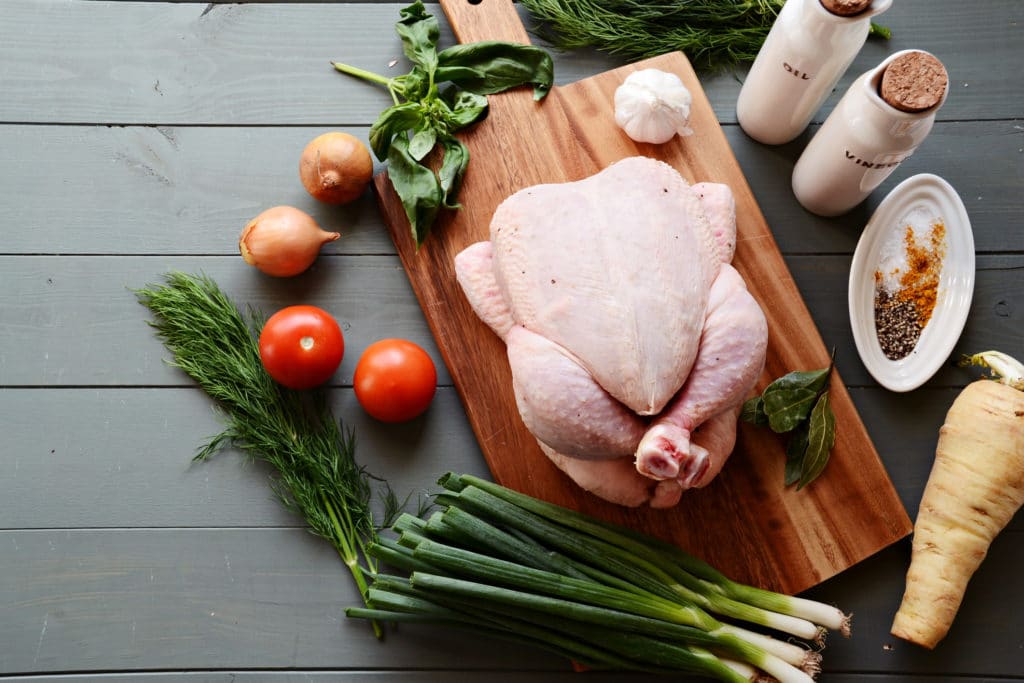Antibiotic-Free Chicken: A Comprehensive Guide To Healthier Poultry Choices
As the demand for healthier and more sustainable food options continues to rise, antibiotic-free chicken has emerged as a popular choice for consumers who prioritize their health and the well-being of animals. People are becoming increasingly aware of the potential risks associated with the overuse of antibiotics in poultry farming. By choosing antibiotic-free chicken, consumers can help reduce the spread of antibiotic-resistant bacteria, support ethical farming practices, and enjoy a healthier diet.
The concept of antibiotic-free chicken is not just a trend but a response to growing concerns about food safety and animal welfare. With more people educating themselves about where their food comes from and how it is produced, antibiotic-free chicken offers a solution that aligns with these values. In this article, we will explore the benefits, challenges, and considerations of antibiotic-free chicken, helping you make an informed decision about your poultry choices.
Whether you're a health-conscious consumer, an advocate for sustainable farming, or simply curious about the differences between conventional and antibiotic-free chicken, this guide will provide you with the knowledge you need to make the best choice for yourself and your family. Let's dive into the world of antibiotic-free chicken and discover why it's becoming a preferred option for many.
Read also:Emergency Intercom Merch A Comprehensive Guide To Enhancing Safety And Communication
What is Antibiotic-Free Chicken?
Antibiotic-free chicken refers to poultry that has been raised without the use of antibiotics, either for growth promotion or disease prevention. This means that these chickens are not given any antibiotics during their lifetime unless absolutely necessary for treating a specific illness. The practice aims to promote healthier farming methods and reduce the risk of antibiotic resistance in both animals and humans.
Unlike conventionally raised chickens, which may receive antibiotics routinely to enhance growth or prevent diseases, antibiotic-free chickens are raised in environments that prioritize natural health and well-being. This approach not only benefits the chickens themselves but also ensures that the meat produced is free from antibiotic residues, making it a safer and healthier option for consumers.
Key Features of Antibiotic-Free Chicken
- No antibiotics administered unless required for treating illness.
- Focus on natural farming practices to maintain health.
- Reduced risk of antibiotic-resistant bacteria.
- Higher standards of animal welfare.
Why Choose Antibiotic-Free Chicken?
Choosing antibiotic-free chicken offers numerous benefits for both consumers and the environment. One of the primary reasons people opt for this type of poultry is the concern over antibiotic resistance. When antibiotics are overused in farming, bacteria can develop resistance, making it harder to treat infections in both animals and humans. By selecting antibiotic-free chicken, you can help combat this growing public health issue.
In addition to health benefits, antibiotic-free chicken supports ethical farming practices. Chickens raised in antibiotic-free environments are often provided with better living conditions, access to outdoor spaces, and a more natural diet. These factors contribute to healthier and happier animals, which ultimately results in higher-quality meat for consumers.
Environmental Benefits
Antibiotic-free chicken farming also has a positive impact on the environment. By reducing the reliance on antibiotics, farmers can minimize the risk of contamination in water and soil. This leads to a cleaner ecosystem and promotes sustainable agriculture practices that benefit both wildlife and human populations.
Understanding the Risks of Antibiotic Use in Poultry
The overuse of antibiotics in poultry farming poses significant risks to both human health and the environment. When antibiotics are routinely administered to chickens, even when they are not sick, bacteria can develop resistance to these drugs. This resistance can then be passed on to humans through the food chain, making it harder to treat common infections.
Read also:Aimee Osbourne A Rising Star In The Music Industry
Furthermore, the use of antibiotics in farming can lead to environmental contamination. Residues from these drugs can enter water systems and soil, affecting wildlife and ecosystems. By choosing antibiotic-free chicken, consumers can help mitigate these risks and promote a healthier planet.
Antibiotic Resistance: A Growing Concern
Antibiotic resistance is one of the most pressing public health issues of our time. According to the World Health Organization (WHO), antibiotic-resistant infections could cause 10 million deaths annually by 2050 if no action is taken. The overuse of antibiotics in poultry farming contributes significantly to this problem, making it crucial for consumers to make informed choices about the food they eat.
How Antibiotic-Free Chicken is Produced
Producing antibiotic-free chicken requires a commitment to ethical and sustainable farming practices. Farmers who raise antibiotic-free chickens focus on creating healthy environments that support natural growth and development. This includes providing chickens with access to outdoor spaces, a balanced diet, and proper veterinary care when needed.
One of the key aspects of antibiotic-free chicken farming is the emphasis on preventive health measures. Instead of relying on antibiotics to keep chickens healthy, farmers use alternative methods such as probiotics, herbal supplements, and improved living conditions to maintain the well-being of their flock. These practices not only reduce the need for antibiotics but also result in healthier and more resilient chickens.
Challenges in Antibiotic-Free Farming
While antibiotic-free chicken farming offers many benefits, it also comes with its own set of challenges. Farmers must invest in better infrastructure, veterinary care, and disease prevention strategies to ensure the health of their chickens. This can increase production costs, which may be reflected in higher prices for consumers. However, many people are willing to pay a premium for the assurance of healthier and more ethical food choices.
The Benefits of Antibiotic-Free Chicken
Consuming antibiotic-free chicken provides numerous benefits for both human health and the environment. By choosing this type of poultry, you can reduce your exposure to antibiotic-resistant bacteria, support ethical farming practices, and enjoy higher-quality meat. Additionally, antibiotic-free chicken is often raised in better living conditions, which can improve the overall taste and texture of the meat.
Another advantage of antibiotic-free chicken is its potential to promote a healthier lifestyle. People who prioritize their health often seek out food options that are free from harmful additives and residues. By selecting antibiotic-free chicken, you can ensure that your diet aligns with your health goals and values.
Healthier Choices for Your Family
For families concerned about the well-being of their loved ones, antibiotic-free chicken offers a safe and nutritious option. It is free from antibiotic residues and often contains higher levels of essential nutrients such as omega-3 fatty acids and vitamins. This makes it an excellent choice for those looking to improve their diet and support their overall health.
Where to Buy Antibiotic-Free Chicken
Finding antibiotic-free chicken has become easier in recent years, thanks to increased consumer demand and the growth of specialty food markets. Many grocery stores now offer a selection of antibiotic-free poultry, often labeled as "no antibiotics ever" or "antibiotic-free." Additionally, online retailers and local farmers' markets provide convenient options for purchasing high-quality antibiotic-free chicken.
When shopping for antibiotic-free chicken, it's important to look for certifications and labels that guarantee the product meets specific standards. Some of the most reputable certifications include Certified Humane, USDA Organic, and Global Animal Partnership (GAP). These labels ensure that the chickens were raised without antibiotics and in accordance with ethical farming practices.
Tips for Shopping Smart
- Look for certified labels such as Certified Humane or USDA Organic.
- Choose products labeled "no antibiotics ever" for assurance.
- Support local farmers and markets for fresher options.
- Compare prices and quality to find the best value for your budget.
How to Cook Antibiotic-Free Chicken
Cooking antibiotic-free chicken is similar to preparing conventional poultry, but there are a few tips to keep in mind to ensure the best results. Since antibiotic-free chickens are often raised in more natural environments, they may have a slightly different texture and flavor compared to conventionally raised birds. To enhance the taste and tenderness of the meat, consider using marinades, herbs, and spices to complement its natural flavors.
When cooking antibiotic-free chicken, it's essential to follow proper food safety guidelines to prevent contamination. Always wash your hands and cooking surfaces thoroughly, and ensure that the chicken is cooked to an internal temperature of 165°F (74°C) to eliminate any potential bacteria.
Delicious Recipes to Try
Here are a few recipe ideas to help you make the most of your antibiotic-free chicken:
- Lemon Herb Roast Chicken
- Grilled Chicken Skewers with Mediterranean Salad
- Chicken Stir-Fry with Vegetables and Ginger Sauce
Addressing Common Misconceptions
There are several misconceptions about antibiotic-free chicken that can lead to confusion among consumers. One common misunderstanding is that all antibiotic-free chicken is organic, which is not necessarily true. While organic chicken is always antibiotic-free, the reverse is not always the case. Another misconception is that antibiotic-free chicken is automatically more expensive, although prices can vary depending on the brand and retailer.
It's also important to note that antibiotic-free chicken does not mean the chickens were raised in poor conditions or that they were never treated with antibiotics. In cases where illness occurs, farmers are allowed to administer antibiotics to ensure the health and well-being of their flock. However, these chickens are no longer considered antibiotic-free and are sold separately from certified antibiotic-free products.
Clearing Up the Confusion
To avoid confusion, always check for certified labels and read product descriptions carefully. This will help you make an informed decision about the type of chicken you're purchasing and ensure that it meets your expectations for quality and ethics.
Conclusion
In conclusion, antibiotic-free chicken offers a healthier, more ethical, and environmentally friendly alternative to conventionally raised poultry. By choosing this type of chicken, you can reduce your exposure to antibiotic-resistant bacteria, support sustainable farming practices, and enjoy higher-quality meat. Whether you're a health-conscious consumer, an advocate for animal welfare, or simply looking for better food options, antibiotic-free chicken provides a solution that aligns with your values and priorities.
We encourage you to explore the world of antibiotic-free chicken and discover the benefits it has to offer. Share this article with your friends and family to spread awareness about the importance of choosing healthier and more sustainable food options. For more information on antibiotic-free chicken and other health-related topics, be sure to check out our other articles and resources.
Table of Contents
- What is Antibiotic-Free Chicken?
- Why Choose Antibiotic-Free Chicken?
- Understanding the Risks of Antibiotic Use in Poultry
- How Antibiotic-Free Chicken is Produced
- The Benefits of Antibiotic-Free Chicken
- Where to Buy Antibiotic-Free Chicken
- How to Cook Antibiotic-Free Chicken
- Addressing Common Misconceptions
- Conclusion



